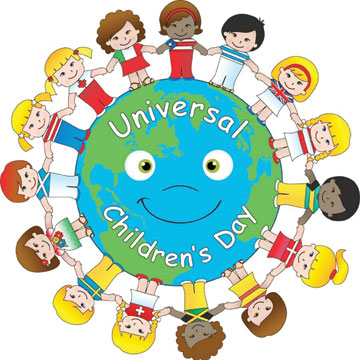Every year Universal Children's Day is observed on 20th November to celebrate childhood and also improve children's welfare.

children’s day
Every year Universal Children's Day is observed on 20th November to celebrate childhood and also improve children's welfare. This week You! takes a look at the overall situation of out-of-school children...
Pakistan faces an education crisis of unprecedented proportions with nearly half of all children of school-going age out-of-school. And sadly, its magnitude remains a matter of debate. Education is the road that children follow to reach their full potential in life. Yet many children in need around the world (especially in developing nations) do not get quality education.
In a country like Pakistan, the education and health sectors are the most neglected areas. And poverty and lack of basic facilities further elevates the problem. Hence, parents especially from the lower strata of our society can't afford to enrol their children in schools. And to help with the household income these kids end up working in harsh conditions - leading to child labour and increasing the ratio of out-of-school children.

Even though, the number of out-of-school children has reduced from last year’s figure of 24 million to 22.6 million, statistics of 2015-16 still paint a gloomy picture, calling for the imposition of real education emergency.
In order to instil the importance of children rights and welfare in society, United Nations announced Universal Children’s Day to be celebrated every year on 20th November. First proclaimed by the United Kingdom in 1954, it was established to encourage all countries to institute a day, firstly to promote mutual exchange and understanding among children and secondly to initiate action to benefit and promote their welfare. On 20th November, 1959, the United Nations adopted the Declaration of the Rights of the Child. And in the continuation of that, the then Secretary-General Ban Ki-moon of the United Nations led the initiative for the education of children in 2012.
Pakistan guarantees educational rights for all children up to the age of 16 and has policies in place at federal and provincial levels. However, Pakistan is ranked second on the world's most out-of-school-children list. Despite these failing policies in place, it is evident that an educational reform needs to take place if Pakistan wants to improve literacy rates for generations to come. Unfortunately, education is currently a privilege enjoyed by the wealthy who are able to send their children to private schools - contributing to the rich-poor divide gap.
A report published by UNICEF in June 2013 provides an overwhelming amount of statistics on children in Pakistan. The study concludes that the majority of children who do not receive an education are prone to child labour, poverty, and gender biases amongst many other deep-rooted concerns. It also provided a detailed analysis of out-of-school children and was important for complementing the on-going work in all provinces and areas to scale up evidence based education activities to ensure that all children have access to quality education. The report also highlighted the need for better disaggregated data that will help policy-makers and education experts to better address challenges and bottlenecks in the education system.
Around 74 per cent of the country's population survives on less than $2 (200 RS) a day. Considering these dire circumstances, children therefore are forced out of schools and into the labour markets in order to support families. The relationship between many out-of-school children and child labour thus becomes intermutual. Contradictory however, an article under The Constitution of Pakistan (Article 11 [3]) states; “No child below the age of 14 years shall be engaged in any factory or mine or any other hazardous employment.” According to UNICEF, Pakistan's child workforce is around 10 million, many whom adorn factory lines working under treacherous conditions and dangerous sectors. Some of these sectors include cleaning oil tankers, glass factories, motor workshops, hotels, and pharmaceutical factories etc.

Laws and initiatives have been passed by the previous Governments of Pakistan to counter child labour such as the Punjab Bonded Labour System Act, a five-year venture costing $2 million to tackle the worst forms of child labour. Nonetheless, it is failing to protect the children of Punjab and has had no or very little affect in combating child labour. The difficulty lies with the lack of enforcement of these laws especially at the provincial level. Furthermore, since child labour has now progressed into homes, it is difficult for agencies to monitor the extreme abuse imposed on children by their employers.
Pakistan already faces an economic crisis and with the rupee declining at an astounding rate of 2.5 per cent a month, inflation is on the rise. The GDP growth is less than 3 per cent while the fiscal deficit is at 9 percent. Moreover, Pakistan still chooses to spend $6 billion U.S. dollars on its military spending, leaving education a meagre 2 per cent of its annual budget allowance. Clearly, money needs to be spent where it is needed and that is on educational reforms. An educated society yields better results economically and socially. Therefore, the government must act with immediate concern in order to save this crippling nation.
Providing compulsory education for all children up to the ages of 16 will ensure a high percentage of literacy and skills which can be transferred to the economic market. Not only is it important to pass such laws, which already exist, but also, it is crucial to ensure that these laws are enforced and regularly monitored. A just education will eliminate many problems including and thus not limited to radicalization. The public must put pressure on leaders to reform education for all classes. The children of Pakistan are our future and they deserve the right to receive an education; a necessity, a basic human right and an obligation for everyone.
- Compiled by Iqra Sarfaraz